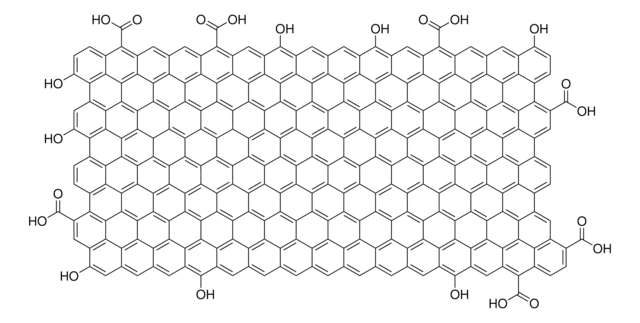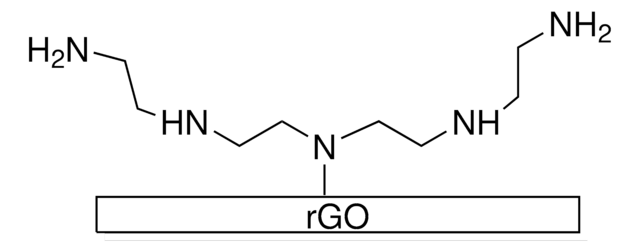Recommended Products
description
chemically reduced by hydrizine
form
powder
composition
Carbon, >75%
Nitrogen, <5%
surface area
103 m2/g
conductivity
7111 S/m (pressed pallet)
Looking for similar products? Visit Product Comparison Guide
General description
Application
- Supercapacitors
- Dye-sensitized solar cells and organic solar cells
- Batteries
- Drug delivery
Storage Class
11 - Combustible Solids
wgk_germany
WGK 3
flash_point_f
Not applicable
flash_point_c
Not applicable
Certificates of Analysis (COA)
Search for Certificates of Analysis (COA) by entering the products Lot/Batch Number. Lot and Batch Numbers can be found on a product’s label following the words ‘Lot’ or ‘Batch’.
Already Own This Product?
Find documentation for the products that you have recently purchased in the Document Library.
Customers Also Viewed
Articles
Since its discovery little more than a decade ago,1 the two-dimensional (2D) allotrope of carbon—graphene—has been the subject of intense multidisciplinary research efforts.
Advances in scalable synthesis and processing of two-dimensional materials
Our team of scientists has experience in all areas of research including Life Science, Material Science, Chemical Synthesis, Chromatography, Analytical and many others.
Contact Technical Service






